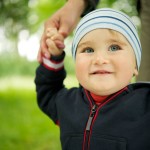Malcolm Gladwell in his book, Outliers, makes a case for understanding successful people. We may think that someone is a self-made person, that they had overnight success or were born with talent to burn. Gladwell asks us to look closer at the components of success. Ambition and intelligence are not enough to create people who thrive. […]
Category Archive:
Social/emotional needs
Independence
We are raising adults, not children. Our job as parents (and parent support systems) is to guide our children to complete independence. Little by little, day by day, we help our children develop skills and take on more responsibility until they can run at full speed on their own two feet. Unfortunately, it is often […]
Listening And Following The Adult
Children naturally want to connect to the adults in their lives. Obedience to these adults is a sign of natural and normal development in a child. Obedience, though, does not refer to an automatic and unthinking response to an order. Obedience, comes from the Latin, oboediere, meaning to listen to. When the relationship is built […]
Love Of Silence And Working Alone
The nature of the young child following natural and normal development is one that loves silence and working alone. Until children enter into a different stage of development, around the time that they lose their first tooth, this love of silence and working alone remains. The desire to be out in the community and working […]
Attachment To Reality
The almost four-year-old boy visiting my classroom was wonderfully verbal. He had just given me a detailed explanation about his family’s move into their new home. “What’s your name?” I asked. “Batman,” he answered. “And what is your name when you’re not Batman?” I asked. “Bruce Wayne,” he said. His mother chuckled. “Isn’t that cute? […]
The Child’s Spontaneous Concentration
In the young child there are observable characteristics of behavior that help us know that a child is following normal development. These characteristics follow: love of order, love of work, deep spontaneous concentration, attachment to reality, love of silence and working alone, sublimation of the possessive instinct, power to act from real choice not just […]
What Social Style Is Your Child?
In ancient Greece Hippocrates defined four personality types: sanguine, melancholic, choleric, phlegmatic. These were based on body fluids, or humors. Today we simply use questionnaires such as the Myers-Briggs Type Indicator®, MBTI, to define sixteen basic personality types. In Nurture by Nature, Paul Tieger and Barbara Barron-Tieger explain the sixteen basic Myers-Briggs types and how […]
The Missing Element
In his book, The Element: How Finding Your Passion Changes Everything, Ken Robinson, Ph.D. tells us that we each need to find that place where the things we love to do intersect with the things we know how to do well. Robinson calls this place of intersecting talent and passion “the Element.” Each person needs […]
Please, Don’t Eat the Marshmallow
In the 1960’s, Walter Mischel conducted the now-famous “marshmallow study” at the Bing Nursery School at Stanford University. A researcher would let a four-year-old choose a treat from a tray and tell the child that he or she could eat the treat right away or wait until the researcher returned and have two. About one-third of […]
Five Hindrances to Enlightenment
Last week’s post discussed how seven factors in Zen Buddhist teachings might be seen as road signs to happy and healthy human development. These seven factors are universal virtues that are found in most cultures of the world, in different words and contexts, but there all the same. Mindfulness. Investigation. Energy. Joy. Tranquility. Concentration. Equanimity. […]










